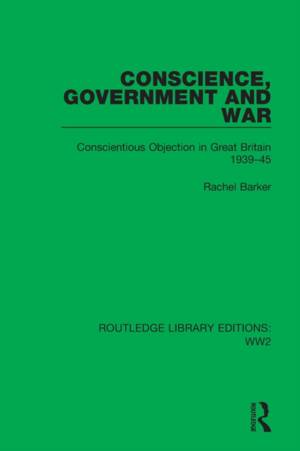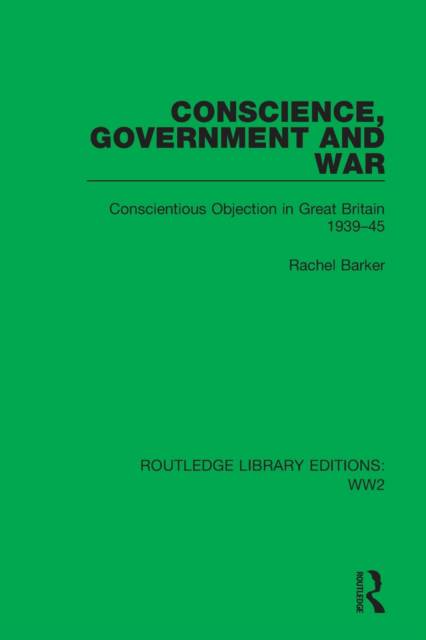
- Retrait gratuit dans votre magasin Club
- 7.000.000 titres dans notre catalogue
- Payer en toute sécurité
- Toujours un magasin près de chez vous
- Retrait gratuit dans votre magasin Club
- 7.000.0000 titres dans notre catalogue
- Payer en toute sécurité
- Toujours un magasin près de chez vous
Description
This book, first published in 1982, is a systematic and detached analysis of the 60,000 British conscientious objectors in the Second World War, forming an examination of the relationship between the individual and the State in time of war. It sets out to show how the British Government dealt with the challenge that conscientious objectors posed and how far it was able to correct the abuses and injustices that occurred in the First World War. It traces the background of pacifism between the Wars and the introduction of conscription, and gives a detailed account of the functioning of the Conscientious Objectors' Tribunals and an assessment of their work. It goes on to examine the reactions and attitudes of Tribunal members, employers and the rest of the population, and how these were affected by the Government lead. It recounts the experience of objectors in civilian life and private and public employment, and how they fared in the armed forces and prisons. It also assesses the contributions made by the voluntary organisations who helped conscientious objectors in the war.
Spécifications
Parties prenantes
- Auteur(s) :
- Editeur:
Contenu
- Nombre de pages :
- 182
- Langue:
- Anglais
- Collection :
Caractéristiques
- EAN:
- 9781032040219
- Date de parution :
- 15-03-23
- Format:
- Livre broché
- Format numérique:
- Trade paperback (VS)
- Dimensions :
- 156 mm x 234 mm
- Poids :
- 272 g

Les avis
Nous publions uniquement les avis qui respectent les conditions requises. Consultez nos conditions pour les avis.






